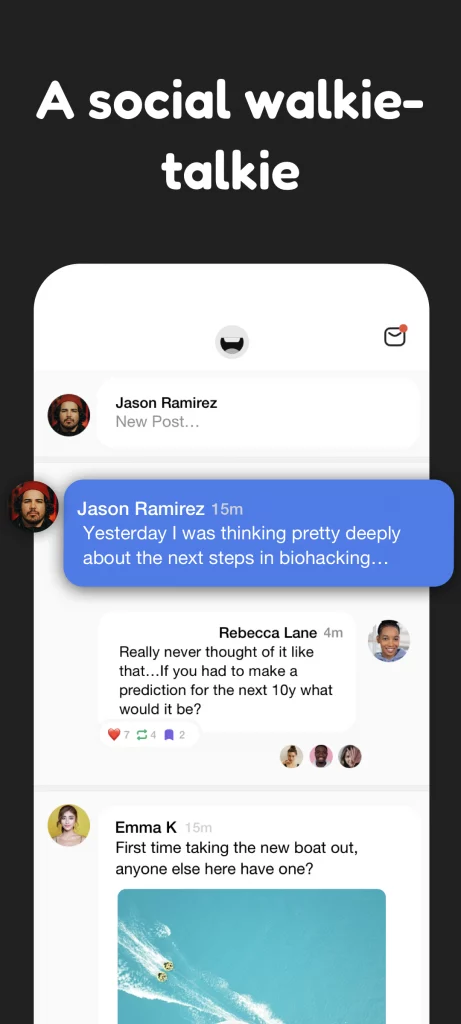In the world of social apps, where text-based communication dominates, a new contender is making waves by encouraging users to “just talk.”
Originally launched last year, AirChat — which is described as “a push-to-talk, voice-first public messenger with near-perfect transcripts” — underwent a significant overhaul led by prominent figures such as AngelList founder Naval Ravikant and former Tinder product executive Brian Norgard. The revamped version, available on both iOS and Android, was reintroduced to the world this week, and quickly climbed the ranks on Apple’s App Store.
Using Airchat
At first glance, AirChat feels familiar and intuitive, resembling other social media platforms like Facebook and X with features like following users, scrolling through a feed of posts, and engaging with content through replies, likes, and shares. However, what sets AirChat apart is its unique twist: all posts and replies are in the form of audio recordings, which the app transcribes for convenience.
Upon opening AirChat, users are greeted with a stream of messages that automatically play, allowing for seamless navigation through the audio content by swiping up and down. While users have the option to pause the audio and read AI generated text transcripts, the app’s focus remains on audio interactions, which Ravikant believes fundamentally alters the social dynamic compared to text-based platforms.


AirChat’s asynchronous, threaded posts offer a departure from the live chat room format seen on platforms like Clubhouse and Twitter Spaces. Norgard highlights that this approach mitigates the fear of stage fright, as users can craft their messages at their own pace without pressure.
Interestingly, early user feedback suggests that AirChat resonates particularly well with introverted individuals, highlighting its potential to foster connections among those who may feel more comfortable expressing themselves through voice rather than text.
While some users, like myself, may initially hesitate to contribute audio content, the allure of hearing founders like Ravikant and Norgard articulate their vision firsthand adds a compelling dimension to the platform. Voice messaging enables nuances of enthusiasm and intonation to shine through, enhancing the overall user experience.
Challenges for Airchat Remain
However, challenges remain, such as adjusting to playback speeds and implementing effective content moderation mechanisms. Ravikant acknowledges the importance of combating spam and trolls but assures users that the platform is equipped with sophisticated rules to address such issues.
In terms of monetization, Ravikant emphasizes a steadfast commitment to user experience over immediate profitability, stating that there is “no monetization pressure” on the company. Instead, AirChat aims to prioritize user engagement and community building, even if it means operating on a shoestring budget for the time being.
As AirChat continues to evolve and attract a diverse user base, its innovative approach to social interaction through voice messaging holds the potential to redefine how we connect and communicate in the digital age. Whether it’s fostering genuine conversations or discovering new perspectives, AirChat invites users to embrace the power of their voice in shaping meaningful interactions online.
Have you tried Airchat yet? Let us know what you think in the comments.



